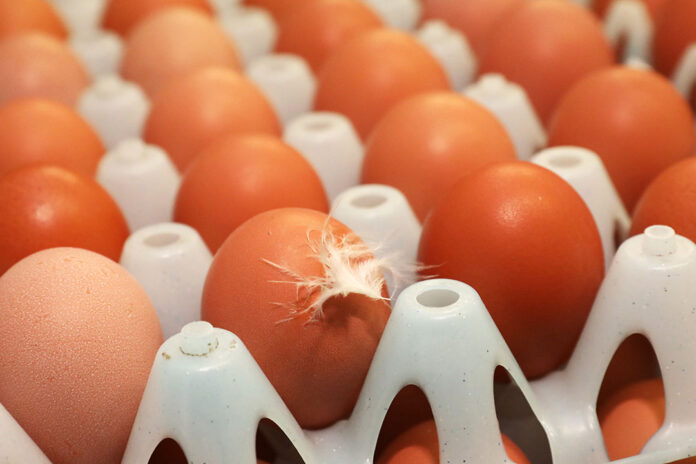Sri Lanka’s chicken meat production has collapsed 30 percent and egg output 40 percent as a currency collapse pushed up costs and feed imports were blocked by foreign exchange shortages, an industry official said.
“Small and medium farmers are leaving the business due to feed shortages and because big poultry companies are stopping buy back schemes,” Ajith Gunasekera, President of the All Island Poultry Association said.
Broiler meat output has fallen 30 percent to 12,000 metric tonnes a month from 18,000 metric and prices have shot up, he said.
A kilo of chicken is around 1,200 rupees from 460 rupee levels before economists started to print money to target an output gap by mis-targeting interest rates, and official inflation rose 39 percent in the year to May 2022.
Eggs which were around 18 to 25 rupees before the latest money printing bout have now shot up to 43 to 50 rupees.Egg production has collapsed 40 percent, amid feed shortages.
Gunasekera said daily egg production which was around 700,000 to 800,000 and now fallen to around 400,000.
“Chicken are also laying fewer legs due to nutrition problems,” Gunasekera said “A chicken will usually lay about one egg a day but without proper feed they will lay fewer eggs.”
Egg prices are up partly due to high transport costs from Kuliyapititya where most of the large egg farms are located to Colombo, he said.About 73 percent of the cost of raising broilers was feed.
Maize which was 40 to 45rupees a kilogram has now gone up to 80 to 90 rupees a kilogram but there was no supply with the domestic Maha season harvest having failed due to a fertilizer ban.Due to reduced paddy milling, rice polish is also not available.
Forex shortages from the non-credible peg has made it difficult to import maize or soya meal.The industry is hoping to get some inputs from the Indian credit line.
However he noted that poultry producers have to pay VAT, NBT and income tax excluding other duties and indirect taxes, in particular tax (CESS) on maize and other consumables, which are also substantial in amount and become a stumbling block under the present economic difficulties.
Several leading poultry production firms, which control an estimated 65 percent of the market, were forced to export their produce to maintain margins, he claimed.
He added that if the new administration takes prompt action to promote poultry exports, then the country’s dollar crisis could be tackled to a great extent.
All Island Poultry Association ( AIPA) Chairman Ajith Gunasekara disclosed that the industry has already invested heavily for poultry production and the government should provide more incentives for producers.
He complained that that was a shortage in animal feed, as domestic production of maize reduced and the Government imposed a ban on maize imports due to a policy to promote local production.
This has resulted in the poultry industry being unable to import the necessary maize to fill the shortage in domestic supply.
